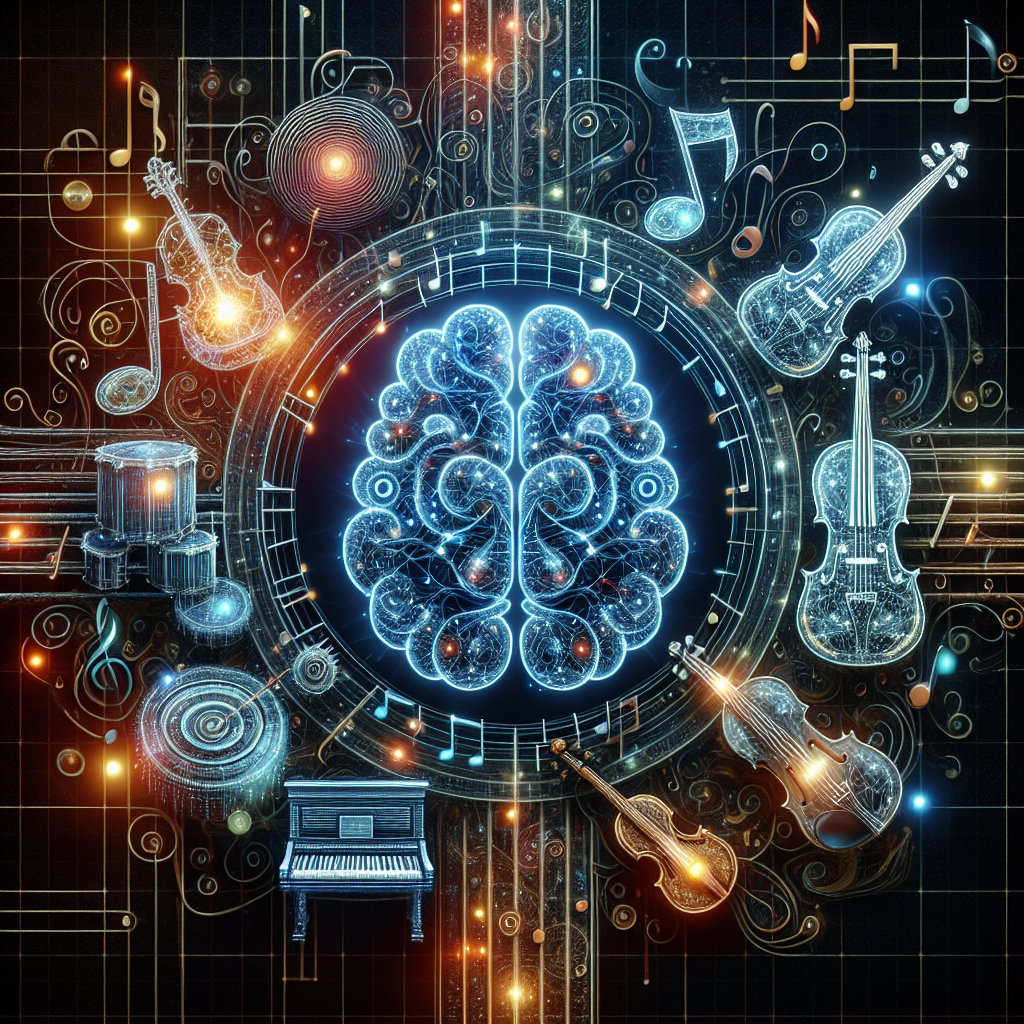Artificial Intelligence (AI) has become increasingly prevalent in the entertainment industry, disrupting traditional methods of creating soundtracks and scores for films, TV shows, video games, and other forms of media. AI-generated soundtracks and scores are revolutionizing the way music is produced, providing new opportunities for creativity, efficiency, and cost-effectiveness. In this article, we will explore the impact of AI on the entertainment industry, the benefits and challenges of using AI-generated soundtracks and scores, and the future of AI in music production.
The Impact of AI on the Entertainment Industry
AI technology has been integrated into many aspects of the entertainment industry, from content creation to distribution and consumption. In the realm of music production, AI has the potential to revolutionize the way soundtracks and scores are created. Traditional methods of composing music involve human composers, musicians, and producers working together to create original music that enhances the emotional impact of visual media. However, this process can be time-consuming, expensive, and limited by the available resources.
AI-generated soundtracks and scores offer a new approach to music production, using algorithms to analyze data and create music that fits the desired mood, tempo, and style. AI can generate music in real-time, adapt to changes in the visual media, and deliver a customized soundtrack that enhances the overall viewing experience. This technology has the potential to streamline the music production process, reduce costs, and provide new opportunities for creativity and innovation in the entertainment industry.
Benefits of AI-Generated Soundtracks and Scores
There are several benefits to using AI-generated soundtracks and scores in entertainment:
1. Efficiency: AI can analyze vast amounts of data and generate music quickly and efficiently, reducing the time and effort required to create original soundtracks and scores.
2. Cost-effectiveness: AI technology can lower the cost of music production by eliminating the need for human composers, musicians, and producers, making it more accessible to independent filmmakers and content creators.
3. Customization: AI can create music that is tailored to the specific needs of a project, providing a unique and personalized soundtrack that enhances the emotional impact of visual media.
4. Flexibility: AI-generated soundtracks and scores can be easily modified and adapted to fit changes in the visual media, allowing for a seamless integration of music and visuals.
Challenges of AI-Generated Soundtracks and Scores
While AI-generated soundtracks and scores offer many benefits, there are also challenges associated with this technology:
1. Lack of Human Touch: AI-generated music may lack the emotional depth and creativity of human composers, leading to a less authentic and engaging listening experience.
2. Copyright Issues: There may be legal challenges related to the ownership and licensing of AI-generated music, as it may be difficult to determine the original creator of the music.
3. Limited Creativity: AI algorithms may be limited in their ability to create innovative and original music, leading to a homogenization of soundtracks and scores in the entertainment industry.
4. Ethical Concerns: There are ethical considerations related to the use of AI technology in music production, including issues of transparency, bias, and accountability.
The Future of AI in Music Production
Despite the challenges associated with AI-generated soundtracks and scores, the future of AI in music production looks promising. As AI technology continues to advance, we can expect to see new developments in the field of music production, including:
1. Enhanced Creativity: AI algorithms are becoming more sophisticated and capable of creating music that is indistinguishable from human compositions, leading to new opportunities for creativity and innovation in music production.
2. Collaboration: AI technology can facilitate collaboration between human composers and AI algorithms, allowing for a hybrid approach to music production that combines the strengths of both humans and machines.
3. Personalization: AI-generated soundtracks and scores can be personalized to fit the unique preferences of individual listeners, providing a tailored listening experience that enhances the emotional impact of visual media.
4. Integration: AI technology can be integrated into existing music production workflows, providing new tools and techniques for composers, musicians, and producers to enhance their creative process.
FAQs
Q: Can AI-generated music replace human composers?
A: While AI technology has the potential to create music that is indistinguishable from human compositions, it is unlikely to replace human composers entirely. Human creativity, emotion, and intuition are integral to music production, and AI technology can complement, rather than replace, the work of human composers.
Q: Are there ethical concerns related to the use of AI in music production?
A: Yes, there are ethical considerations related to the use of AI technology in music production, including issues of transparency, bias, and accountability. It is important for creators and consumers of AI-generated music to be aware of these ethical concerns and to address them in their work.
Q: How can AI-generated soundtracks and scores enhance the entertainment industry?
A: AI-generated soundtracks and scores can enhance the entertainment industry by providing new opportunities for creativity, efficiency, and cost-effectiveness. AI technology can streamline the music production process, reduce costs, and deliver customized music that enhances the emotional impact of visual media.
In conclusion, AI-generated soundtracks and scores are transforming the way music is produced in the entertainment industry, offering new opportunities for creativity, efficiency, and cost-effectiveness. While there are challenges associated with this technology, the future of AI in music production looks promising, with advancements in creativity, collaboration, personalization, and integration. By embracing AI technology in music production, creators and consumers can unlock new possibilities for enhancing the emotional impact of visual media and creating unique and engaging listening experiences.

